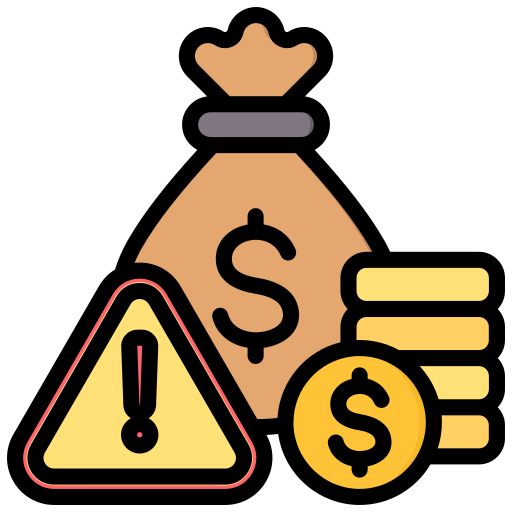Introduction
As technology continues to advance, so do the tactics of cybercriminals. In 2024, online scams have reached new levels of sophistication, making it increasingly challenging for individuals and businesses to protect themselves. Understanding these advanced scams is crucial for staying safe in the digital world. This comprehensive guide explores the top 10 most sophisticated online scams of 2024, provides real-life examples, and offers practical tips on how to avoid falling victim to these devious schemes.
1. Phishing-as-a-Service (PhaaS)

Phishing scams have evolved into a service model, where cybercriminals offer phishing kits and services to other criminals. These kits include pre-made phishing emails, fake websites, and tools to harvest credentials.
Real-Life Example:
In early 2024, a global retailer experienced a data breach when employees fell victim to a sophisticated PhaaS attack. The phishing emails mimicked internal communications, leading to the exposure of sensitive customer data.
2. Deepfake Fraud

Deepfake technology, which creates highly realistic fake videos and audio, is being used to impersonate individuals and carry out fraud. This technology can be used to manipulate voices or create convincing videos of CEOs or other high-profile individuals.
Real-Life Example:
A European energy company lost millions when scammers used deepfake audio to impersonate the CEO, instructing employees to transfer funds to a fraudulent account.
3. Cryptocurrency Scams

As cryptocurrency gains popularity, so do scams targeting investors. These scams often involve fake ICOs (Initial Coin Offerings), fraudulent exchanges, and phishing attacks aimed at stealing digital wallets.
Real-Life Example:
A well-known cryptocurrency exchange was compromised in 2024, leading to the theft of millions in Bitcoin. The attackers used a combination of phishing and social engineering tactics to gain access to user accounts.
4. Social Media Impersonation
Cybercriminals create fake profiles on social media platforms to impersonate celebrities, politicians, or companies. These profiles are used to scam followers out of money or personal information.
Real-Life Example:
In 2024, a prominent tech influencer’s identity was stolen on social media. Scammers used the fake profile to promote a bogus investment scheme, resulting in substantial financial losses for victims.
5. Ransomware as a Service (RaaS)
Ransomware attacks, where data is encrypted and a ransom is demanded for its release, have become more accessible through RaaS. This service allows even non-technical criminals to launch devastating attacks.
Real-Life Example:
A small hospital in the U.S. faced a severe ransomware attack in 2024. The attackers demanded a hefty ransom, crippling the hospital’s operations and putting patient data at risk.
6. Business Email Compromise (BEC)

BEC scams involve hackers infiltrating business email accounts to carry out unauthorized transactions or steal sensitive information. These scams often target employees with access to company finances.
Real-Life Example:
A multinational corporation lost millions when hackers used BEC tactics to trick an employee into transferring funds to a fraudulent account.
7. AI-Powered Voice Phishing (Vishing)
Using AI, scammers create convincing voice messages that mimic trusted individuals or organizations. These messages are used to deceive victims into revealing personal information or making financial transactions.
Real-Life Example:
A high-profile bank reported several cases of AI-powered vishing in 2024, where customers were tricked into providing account details through convincing voice calls from supposed bank representatives.
8. Fake Job Offers
Scammers post fake job listings on legitimate job boards to collect personal information from applicants or charge them fees for nonexistent training programs or background checks.
Real-Life Example:
Thousands of job seekers were scammed in 2024 through fake job offers on popular job sites. Victims provided personal information and paid fees, only to discover the jobs were fake.
9. Online Investment Scams
Investment scams promise high returns with little risk. These scams often involve fake investment platforms or fraudulent advisors who convince victims to invest in bogus schemes.
Real-Life Example:
An online investment platform was exposed in 2024 as a Ponzi scheme, defrauding thousands of investors out of their life savings.
10. Internet of Things (IoT) Attacks
As IoT devices become more common, they are increasingly targeted by cybercriminals. These attacks can lead to data breaches, unauthorized access, and control of connected devices.
Real-Life Example:
In 2024, a major smart home device manufacturer experienced a breach where hackers gained control of thousands of devices, leading to privacy violations and security risks.
How to Protect Yourself from Online Scams
Strengthen Your Online Security
- Use Strong Passwords: Create complex passwords and use a password manager.
- Enable Two-Factor Authentication: Add an extra layer of security to your accounts.
- Stay Informed: Keep up to date with the latest scams and how to recognize them.
Be Cautious Online
- Verify Sources: Always verify the legitimacy of emails, messages, and websites before providing personal information.
- Avoid Clicking on Unknown Links: Be cautious of links in emails or messages from unknown sources.
- Monitor Accounts: Regularly check your financial and online accounts for any suspicious activity.
FAQs About Online Scams
1. How do you protect yourself from Internet fraud?
Protect yourself by using strong, unique passwords, enabling two-factor authentication, verifying sources, and staying informed about the latest scams.
2. How to deal with fraud online?
Report the fraud to relevant authorities, change your passwords, monitor your accounts, and seek professional help if necessary.
3. What are the solutions to Internet fraud?
Solutions include education and awareness, using security tools, regular monitoring, secure transactions, and reporting suspicious activity.
4. How can you prevent fraud when selling online?
Verify buyer information, use secure payment methods, monitor transactions, protect your website, and have clear return and refund policies.
5. How can we prevent identity fraud online?
Limit personal information sharing, secure your devices, use strong passwords and 2FA, monitor your credit, and be aware of phishing scams.
Conclusion
The rise of sophisticated online scams in 2024 underscores the importance of vigilance and proactive measures to protect yourself and your information. By staying informed about the latest scam tactics and implementing robust security practices, you can significantly reduce your risk of falling victim to these schemes. At [Your Company Name], we are dedicated to providing you with the tools and knowledge to navigate the digital world safely.















